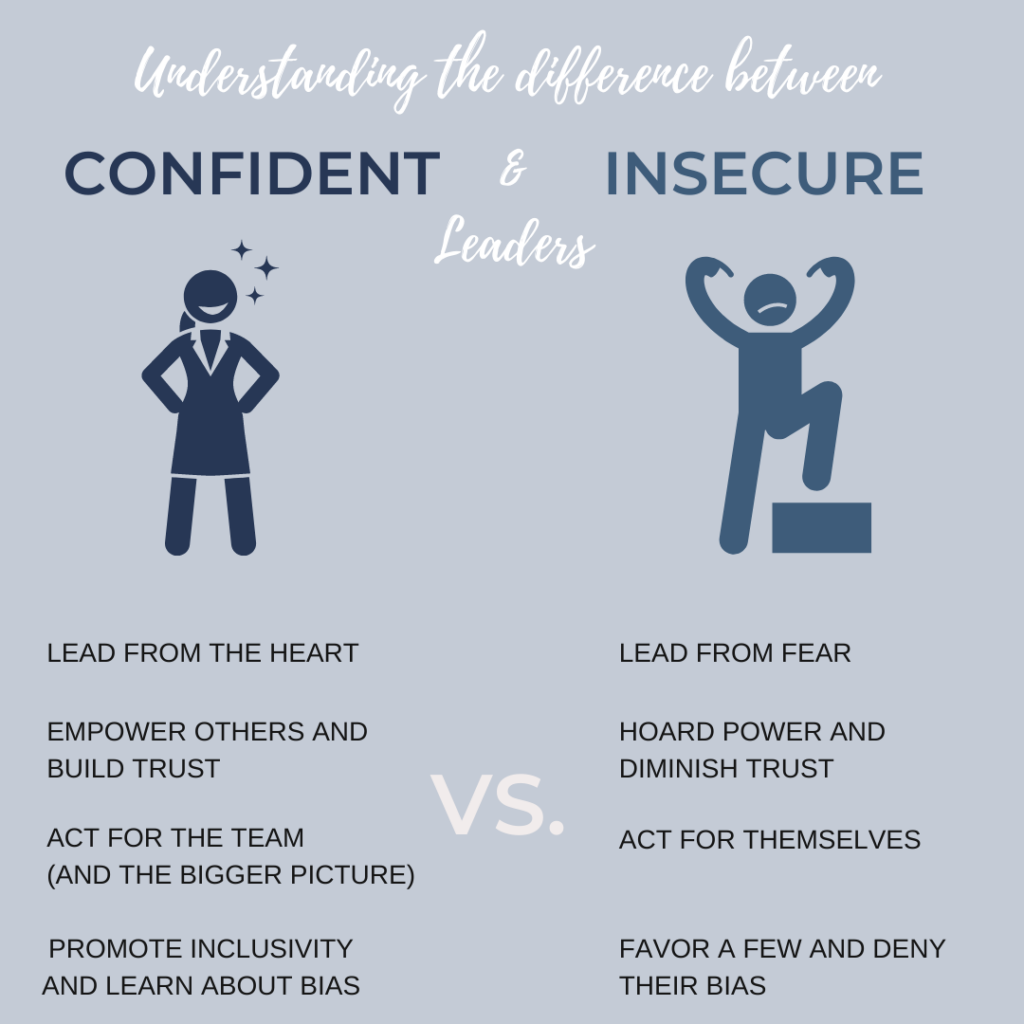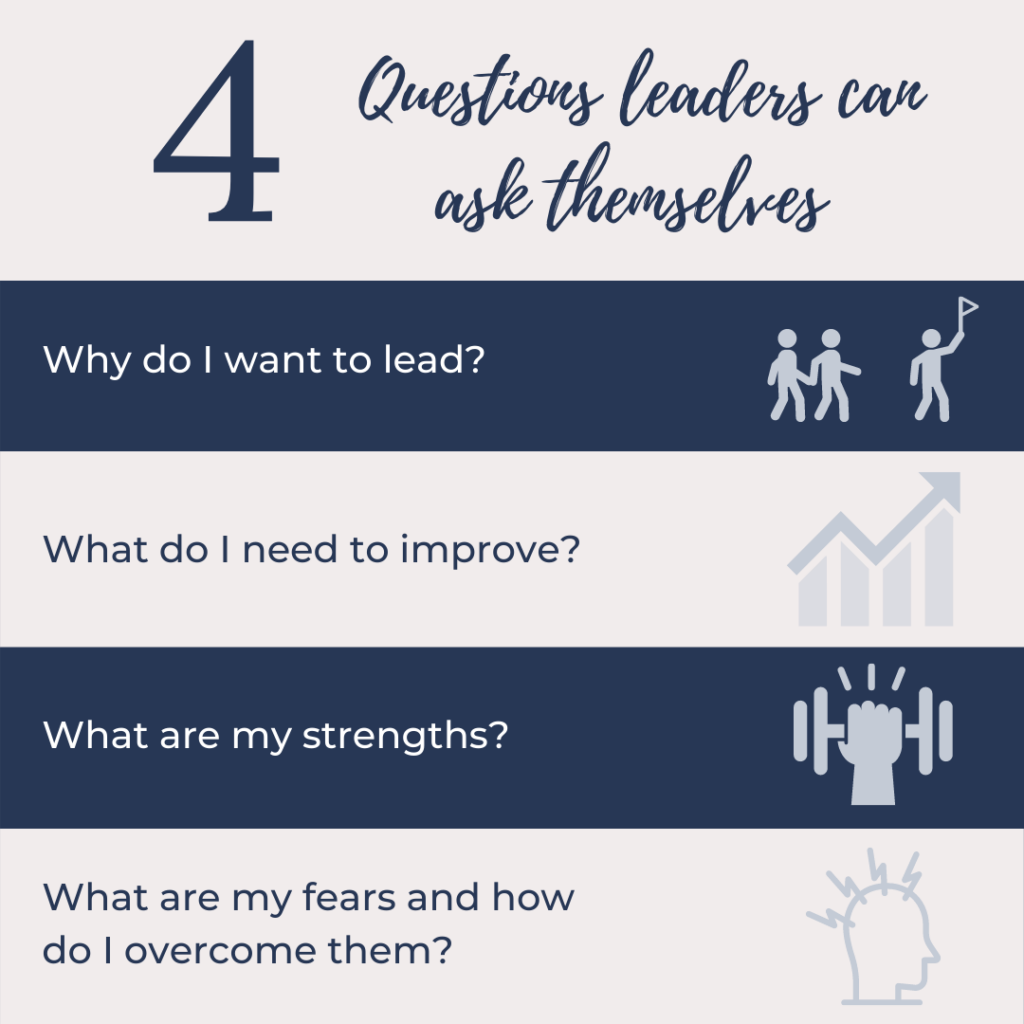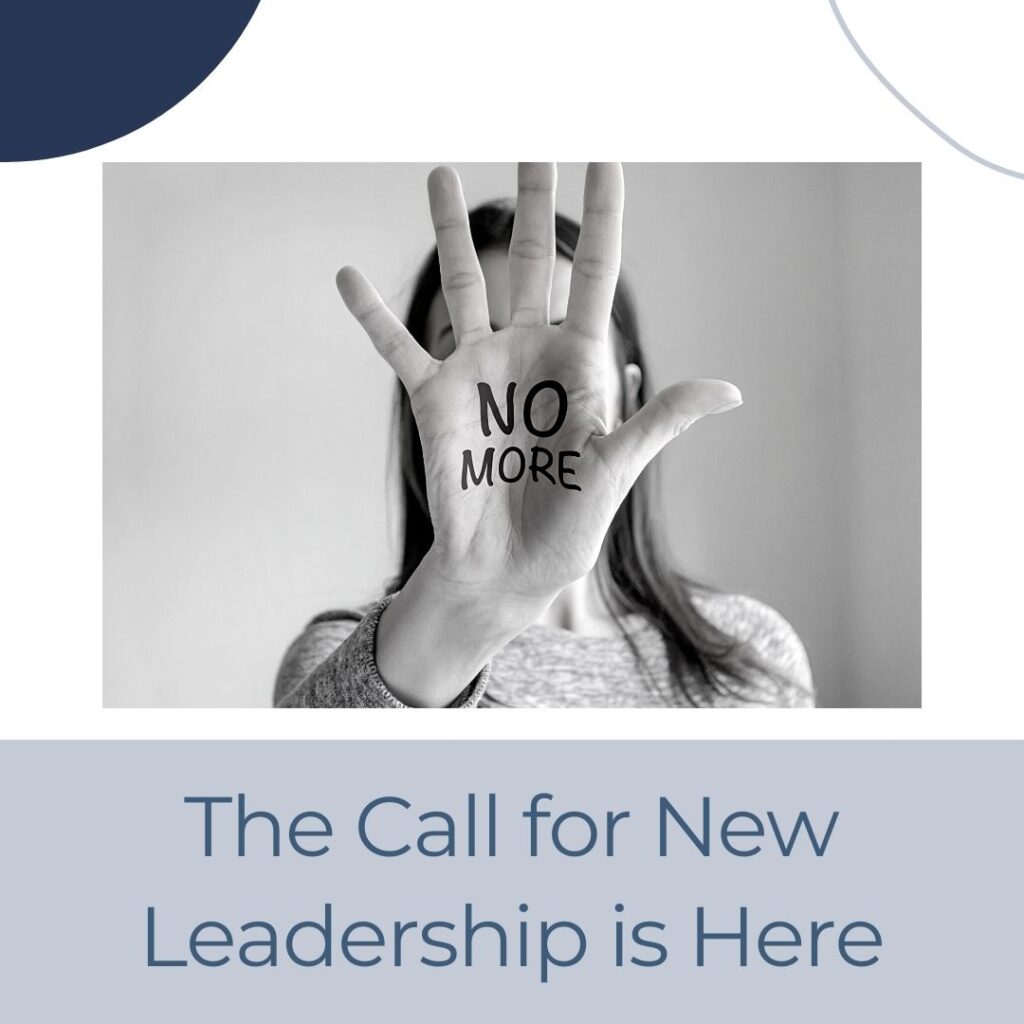The call for new leadership is here. Leaders can either rise up and steer the ship, or lead from fear and capsize the culture. While books and articles have been written for decades about leadership, the pressure to reinvent leadership is mounting. Leaders who do not actively work on self-awareness and self-mastery may fall by the wayside in favor of emerging leaders who embrace the landscape, lead from higher consciousness, and understand how future leaders want to be led.
Evaluate Who Gets to Lead
The ramifications of appointing a toxic, ego-driven leader can be detrimental to the culture of the organization. Take note of why leaders want to be promoted. Tune into what they are really saying and observe them in action. Talk to others, including frontline workers, and get their perspectives before granting someone the privilege of leadership. Coaching can be impactful, but emotional intelligence and effective leadership takes time to practice and perfect.
Examine your own leadership lens. What criteria do you use when evaluating leaders? Where may your own unconscious biases be getting in the way? Where might you be automatically ascribing someone to a leadership role because they are similar to you or “look” like a leader? How well do you really know your talent?
We may consciously or unconsciously have certain perceptions and expectations of people who are different than us, and people who are similar. Both can be equally dangerous. We are each unique and have different human experiences.
Leaders who are not ready to serve a greater good beyond their career aspirations may need more time to self-reflect and develop humility. Evaluate how leaders are promoted (and why they want a promotion), and take careful stock of all the available talent. If you feel you do not have many options for a succession plan, take a look again at the available talent and get creative. Chances are, there are more options than you think.
Confident vs. Insecure Leadership
Insecure leaders who project confidence outwardly may be territorial of their talent, fearful of sharing the spotlight, and prevent team members from expanding beyond their current roles. They may have mastered “managing up,” and believe that they are doing a good job leading. Lacking self-awareness, these leaders act more for their own self-preservation than in the interest of the team. Leaders who adhere tightly to old blueprints and believe their way is the best/right/only way to get work done can shatter creativity, innovation and morale.
Forward-thinking leaders, on the other hand, create an environment where employees can unlock their talents and discover more effective ways to achieve outcomes. Leaders who are confident lead from a combination of heart, logic, and intuition versus fear. They empower their team members to flourish and find opportunities outside their assigned scope of work.
Confident leaders invite others to the stage and recognize that nothing was accomplished in a vacuum. They stand in higher truth and know that leadership is not about them nor their agendas. These leaders understand that team members can and should outgrow them. They do not feel threatened; rather, they are secure in themselves and recognize everyone is on their own path and things are always changing (including their own roles). They are not fighting for themselves; they are empowering others. An effective leader exhibits these qualities and lives them consistently.

The Difference Between Confident and Insecure Leaders
How Leaders Can Evolve
Leadership is lifelong commitment, not one-and-done retreats and programs. It requires holding up mirrors to ourselves, owning our mistakes and learning from them, and practicing self-accountability. Leaders need to step outside their stardom and pave the way for other leaders.
To expand conscious leadership, you can:
Reimagine New Leadership
- Turn leadership on its head and dismantle it. Leadership is not about titles, hierarchy, tenure, years of experience, nor age
- Become more comfortable with vulnerability and admit mistakes
- Embrace your shadows and notice your ego. When are you leading from heart versus fear?
- Pay attention when you are getting overly immersed in the politics. This may indicate leading from fear, self-preservation and ego
- Optimize structure and processes to empower leadership effectiveness. Streamline work so you can focus on leading and self-reflection
- Embrace an abundance mindset. There is more than enough success to go around
- Exercise integrity and know when to step down from a leadership role
Expand Human-Centric Skills
- Advance your human-centric skills including emotional intelligence, empathy, adaptability, patience and effective communication. Lead with humility and a desire to grow
- Promote shared leadership where the spotlight is not shining on just a few
- Listen to what’s being said and what’s not being said. Be present in the conversation and come from a place of curiosity and compassion
- Create a safe-to-fail space with the goal of learning, growing, and sharing knowledge. Have the courage to act when it is not working out
- Remain humbly confident
- Let go of the small stuff and see beyond the work. Think longer-term, bigger picture, not just what is needed in the moment
- Nurture and honor relationships – including the one with yourself. Keep those bridges intact
“Remain humbly confident.”
-Manisha Dhawan
Tap into Talents of the Team
Leaders understand everyone has potential for greatness, then create an environment where potential can be unleashed. They can tap into the talents of the individuals and the collective team.
- Trust and empower your team. Help them connect the dots between their passion, purpose and the company’s larger mission
- Recognize, respect and celebrate different abilities and personality types. Get to know everyone on your team. Be mindful of favoritism and rewarding only extroverts or people who are similar to you
- Learn more about your biases through reflection, assessments and candid conversations
- Customize leadership for each individual and meet people where they are. What are their preferences and motivators? How well do you know each person on your team? Do you genuinely care and show you care?
- Get feedback, and not just from your fans
- Invite everyone to the table to contribute and speak. By doing so, you are building community, inclusion and a sense of belonging
- Put your team first, even if you’re on your way out. Prop them up, despite your fate with the organization
Be Courageous
- Ask difficult questions and challenge the status quo
- Do not be afraid to dive into the trenches, but know when to take a step back and let others lead
- Be bold, unique and fearless. Push boundaries, dispel myths and encourage creative problem-solving

Four Questions Leaders Can Ask Themselves
Practice Lifelong Self-Work
As the demand for more conscious, and humble yet courageous leadership increases, leaders will need to start with self and evaluate how they show up. Ask yourself why you want to lead. Be honest with yourself. How are you showing up as a leader at work and in your life? How do you want to show up?
Leadership is a lifelong practice. It involves facing our fears, being vulnerable and humble, and wanting to commit to self-development. The desire to learn should be ongoing, and the ego should be managed when it interferes.
Exceptional leaders focus on long-term relationships, higher purpose and self-mastery. They continually rethink leadership, challenge the status quo, and streamline work so they can refine their leadership abilities.
We each have a choice in how we show up and what kind of leader we want to be. As we release the ego and realize we are serving something much bigger than ourselves, our leadership lens shifts to something outside of us.
Will you answer the call for new leadership?
For more inspiration and tips, follow me on LinkedIn.
Copyright © 2021 Manisha Dhawan. All rights reserved.

Manisha Dhawan, Founder and CEO of MPath Coaching, is a certified professional coach (CPC), MBA and management consultant with 2 decades of experience leading digital innovation and change management initiatives across multiple industries. As a design thinking specialist and lifelong learner, Manisha is passionate about empowering executives to advance leadership skills, maximize team potential, and drive innovation forward. In addition to corporate coaching, Manisha works with professionals on career strategy and human skills development.

